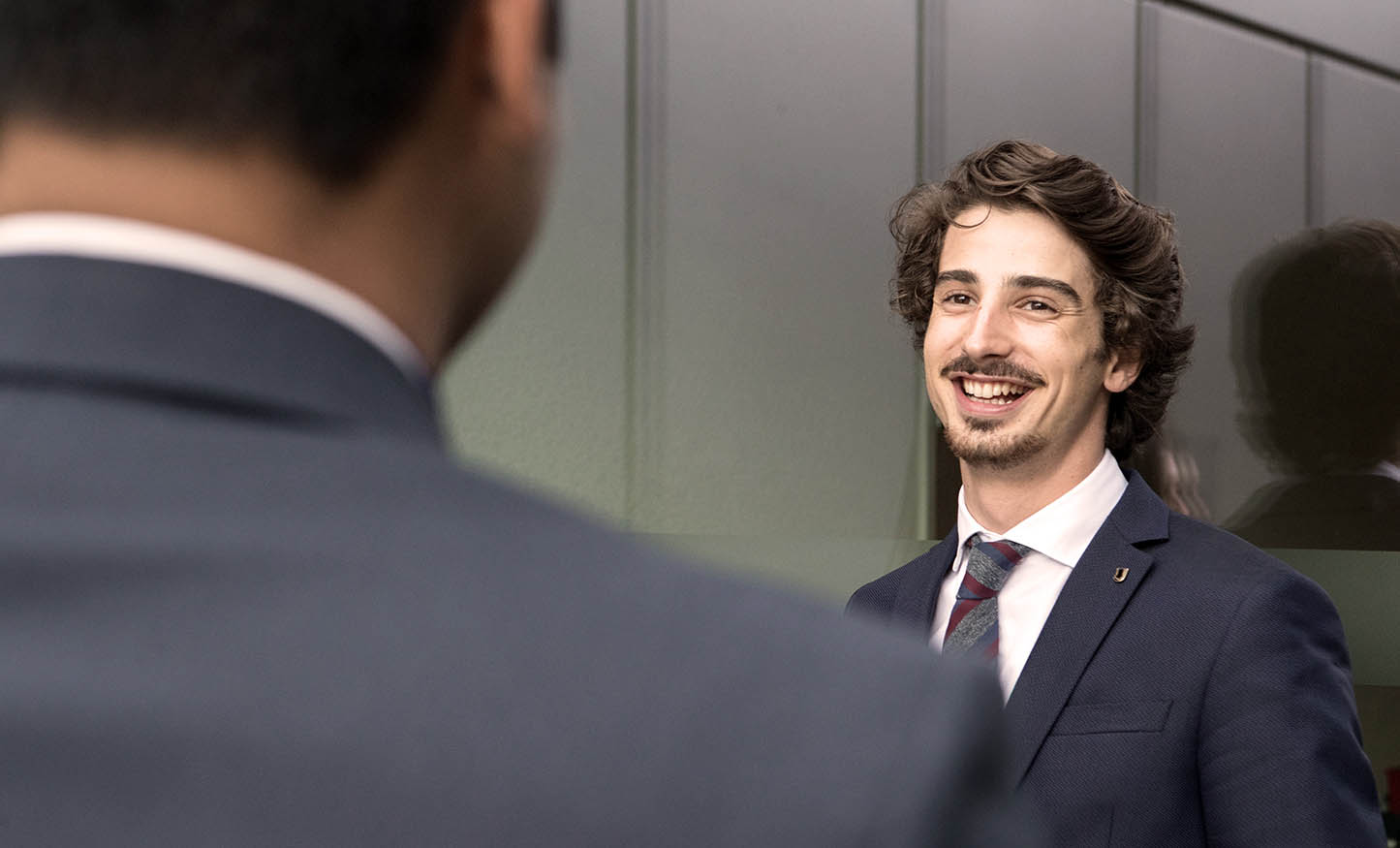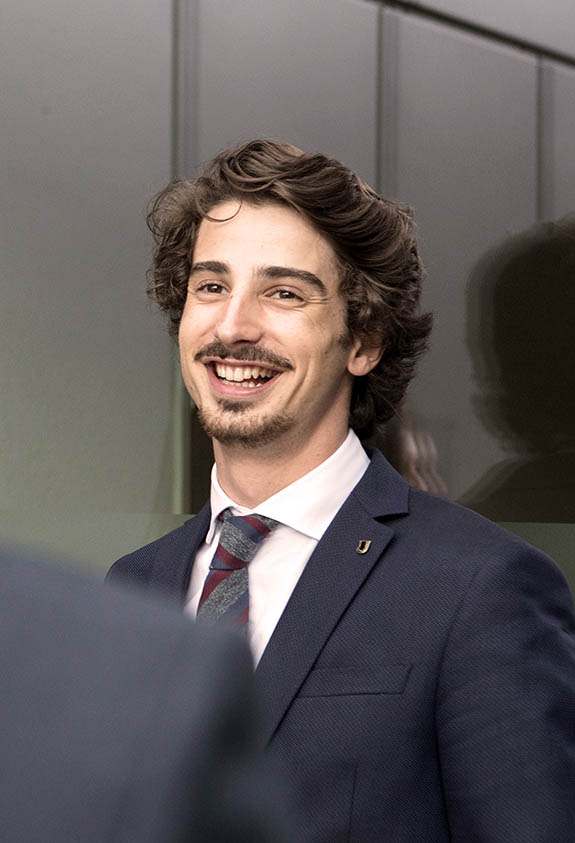


The hospitality industry is changing quickly led by new technology and evolving consumer behaviors, and the same is true for practically every other industry. Hotel schools, on the other hand, are often seen as remaining very much the same as they were 50 years ago, an outdated perception that needs to change.
More than a traditional university environment, hospitality management schools – which used to be known as simply “hotel schools” – are preparing students for the future of all global industries by integrating technology, customer experience and research into the academic programs.
Here’s a look at the three major trends that are shaping the world of hospitality management education and how hotel schools, such as Glion Institute of Higher Education, are evolving as students and faculty members adopt the latest technology to keep up with industry trends.
Keeping up with the hospitality industry
We’ve heard so often over the past few years that millennials are changing the way the hospitality industry works with their ultra-connectivity, their preference for the sharing economy and alternative lodging, and their quest for unique and personalized experiences. This ubiquitous rise of technology, along with the aging “baby boomer” population in developed countries, has led many of the recent reports on education and employment to conclude that students will need to master a wider range of skill sets for the future job market.
Today, the millennials are integrating the workforce and leaving the university space to the next generation of students, Generation Z, who require a different approach that takes into account Gen Z’s slightly different attitudes. Fortunately, most hotel schools are already structured around the industry trends with individualized, specialized programs that use interactive hands-on learning to teach students the necessary combination of hard skills and soft skills for the future of the service industries.
How does a hotel school give students the right skills?
Hotel schools have always trained students to pay attention to detail, to care for customers and provide impeccable service, and our hospitality business programs also meet the industry needs for business specialists.
“According to the BLS, jobs such as market research analyst and marketing specialist jobs, which require these highly specific, tech-analytical skills, will increase 18.6% by 2024.”
At Glion, we’ve been offering specializations for many years now, to allow students to choose a pathway related to their career aspirations and develop specialist skill sets. These specialization courses are industry-based with learning through lecturers, conferences, and faculty mentoring and industry projects.
A good example of this learning process comes from the Contemporary Issues in Marketing class where Glion students were called upon to produce a social media marketing campaign for Fairmont Le Montreux Palace (FLMP). They were briefed on the project objectives and social media channels, and they were given two months to work on a pitch presentation that they presented to the marketing team. Feedback from the Fairmont Le Montreux Palace team and students was resoundingly positive as the project allowed students to exercise their marketing skills on a real project, and gave the FLMP team valuable insight directly from the minds of their target market – millennial consumers and hospitality connoisseurs.
“From the moment we presented the project to the students at Glion Institute of Higher Education, I was amazed with their sense of ownership and initiative,” said Grégory Laguesse, Marketing and Digital Media Manager of Fairmont Le Montreux Palace.
Using technology to help students “make sense” of data and trends
As universities face the challenge of determining when, where and how to integrate technology, it’s important to keep in mind that the graduates of 2020 will be using tools in the workplace that have not been invented yet. To prepare for the future of the industry, hotel schools are teaching students how to make sense of what they do with technology and to use it discerningly and effectively. A few terms for this new skill set are “sense making” and “computational thinking” or the ability to handle a lot of data and to make sense of it all.
Mike MacDonald, Online and Learning Technology Manager at Glion Institute of Higher Education explained how this process is going at Glion.
“Hospitality business courses teach students to think critically, they have to solve complex problems based on research, data and calculations. Additionally, students have to gather information from many sources and that’s where learning technology comes in. Right now, we are focused on finding solutions to teaching that recognize that no single approach to development is versatile enough. No single tool or method will work for all audiences, all the time. For example, following the “Bring your Own Device” example of the hospitality industry, we’ve developed an app for students that works across different devices to give them access to media rich content for their courses whether they are accessing it on a smart phone, or a tablet, laptop or desk top.”
In 2016, Glion Institute of Higher Education won the award for “Best Innovation in an Academic Program” at the Worldwide Hospitality Awards in Paris. This award recognized the innovative approach that Glion has taken to integrating technology into our hospitality management degrees in three ways: First, by incorporating technology in the classroom using devices and industry specific software to provide an interactive learning environment. Secondly, by going paperless and implementing the use of Feedback Studio on all major assessments. Thirdly, by introducing an online internship platform that pairs learning objectives with professional practice during internships.
Scholarship & Research in the Swiss hotel school model
Another area where hotel management schools are setting the bar the area of applied research. In the business world, research is used to solve a problem, find hard facts, draw conclusions and make claims. In academia, research is sometimes done for the sole reason of gathering information and publishing.
Somewhere in between, falls the kind of and research that has to meet both sets of standards, and that is the research that is essential to university-level hospitality education. That’s where the research objectives and themes have been defined for Glion Institute of Higher Education. The institution has recently revised its mission in regards to the participation of faculty members in scholarly and applied research activities, projects and external events for other universities and industry organizations.
Dr. Martin Senior, Director of GIHE Research Centre, wrote a paper which won the designation of “most thought provoking” at the IPoE (International Panel of Experts) 2016 on the theme ‘Excellence – Defined and Measured’ in the sub-theme of Research & Scholarship. He pointed out that:
“Hospitality management education has generally been provided by university departments and hotel management schools, often staffed by former industry professionals. Changes over time have seen these educational departments and schools being absorbed by larger units, such as business schools, and some hotel schools transforming themselves into university-type institutions. With this trend, along with greater industry professionalism, qualification inflation, and increasing regulation, many of these institutions are recognising the need to move away from its strong operational base towards either a balanced approach encompassing operational and academic equivalence, or even academic prominence. This sometimes requires a change in the way the faculty see their role, and sometimes requires a change in the actual faculty composition.”
Glion Hotel School: The past and future of Glion Institute of Higher Education
Glion Institute of Higher Education went by the name of Glion Hotel School for many years, prior to the name change which reflected a transition to university level accreditation and a broader range of programs for hospitality management and sport and event management. Glion has changed a lot since it’s creation as a Swiss hotel management school for international students, but one thing remains the same: Glion stays faithful to its hotel school roots and its dedication to premium, personalized education and hospitality excellence.

















